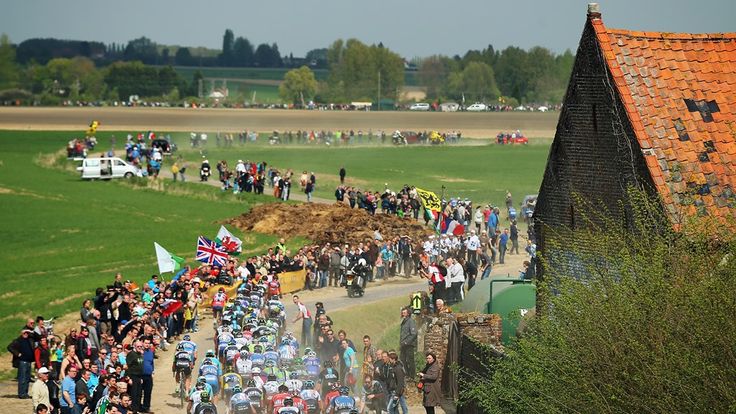The keys to victory in the 'Hell of the North'

Saturday 11 April 2015 14:37, UK
Paris-Roubaix is one of the hardest races to win in professional cycling.
Its length, cobbles and exposure to bad weather make it a war of attrition and a severe test of endurance, bike skills and tactical acumen.
Here are five things Sir Bradley Wiggins must do if he is to claim victory on Sunday…
Tactics – and using your team-mates wisely – are essential at Paris-Roubaix. And Wiggins is fortunate that he will be supported by excellent Team Sky squad containing the like of Geraint Thomas, Ian Stannard and Luke Rowe.
Firstly, they need to make sure they are present when the final group that battles it out for victory forms. Once that happens, Wiggins needs to use the likes of Thomas and Stannard to launch attacks that will force rivals to chase, or chase down attacks from other teams. Then Wiggins will need to pick the perfect time to make his own move.
Because Paris-Roubaix is a flat race, there is a chance it could end in a sprint finish. In 2013 the race came down to a two-man sprint, while in 2014, nine riders sprinted for second place. And Wiggins ended up finishing second last in that group.
An ideal scenario for Wiggins would be to escape and win solo, but should he enter the Roubaix Velodrome in a leading group, he may be required to get out of the saddle and turn on the turbos.
All of the spring classics are hazardous but Paris-Roubaix is particularly so. A constant scramble for position at the front of the peloton means crashes are rife, while the cobbles can be treacherous whether the weather is wet or dry. Crashes have scuppered many a rider’s hopes of victory in the past and Wiggins must stay vigilant to avoid succumbing to the same fate.
This is important for two main reasons. Firstly, Wiggins doesn’t want to get caught behind a crash or a split in the peloton because it would open up a gap between himself and the front-runners that he may find difficult to close. His race could be ended there and then.
Secondly, he needs to be in a good position to launch an attack, or react should a rival make a move. If Wiggins is 10 or 20 riders down the peloton, he will be forced to chase from further back, which limits his chances of covering or joining the move. This is particularly important in the last 50km.
As well as factors within a rider's control, any winner of Paris-Roubaix also needs good luck. Part of this is avoiding crashes, but more even more significant is escaping mechanical problems. The rough roads of Paris-Roubaix are a breeding ground for punctures, while the undulations of the cobbles constantly threaten to jump the chain off the gears.
Getting the right tyre pressure is important, but some punctures are impossible to prevent. And if you get a puncture at the wrong time – just as a rival is attacking, for example – it could be the end of your race.
Follow Paris-Roubaix with our live blog on Sunday from 12pm BST.